Solemn procession organized by Strangers No Longer shows solidarity with suffering migrants; archbishop leads group in prayer
DETROIT — Clergy, religious and pastors from various denominations led hundreds of lay faithful in making their voices heard in advocating for just immigration policies.
On July 14, Strangers No Longer, a Catholic grassroots organization that formed in Detroit to speak on behalf of immigrants, organized a solemn procession from Most Holy Trinity Parish in Corktown to Detroit's U.S. Immigration and Customs Enforcement Field Office in order to deliver a letter asking the agency to review immigration enforcement policies and practices it says have created fear in the immigrant community.
The letter, which was read aloud to the assembly of people gathered outside the building which houses Detroit's ICE field office, highlighted concerns the group has raised over immigration enforcement practices, including the lack of clear identification of ICE agents during immigration actions, including the use of face masks, a lack of communication between ICE and local law enforcement, and the detainment of individuals who have not committed a felony, the group's leaders said.
The procession down Porter Street and Michigan Avenue ended at ICE’s field office, where Fr. David Buersmeyer, Strangers No Longer's chaplain, and Judith Brooks, Strangers No Longer's board president, asked to deliver the letter, but were turned away.
The group said it will look for other ways to deliver the letter, possibly through local congressional leaders.
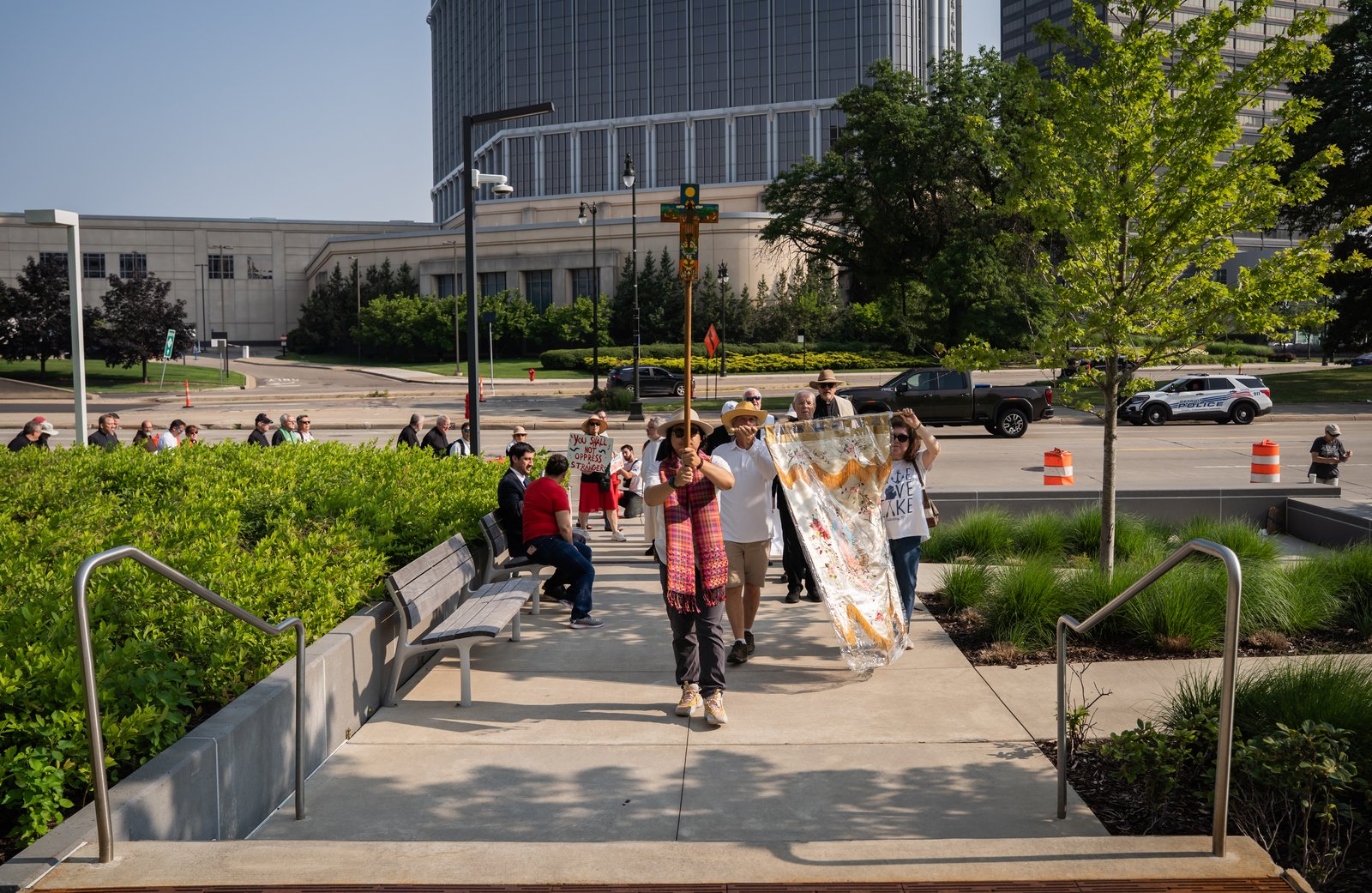
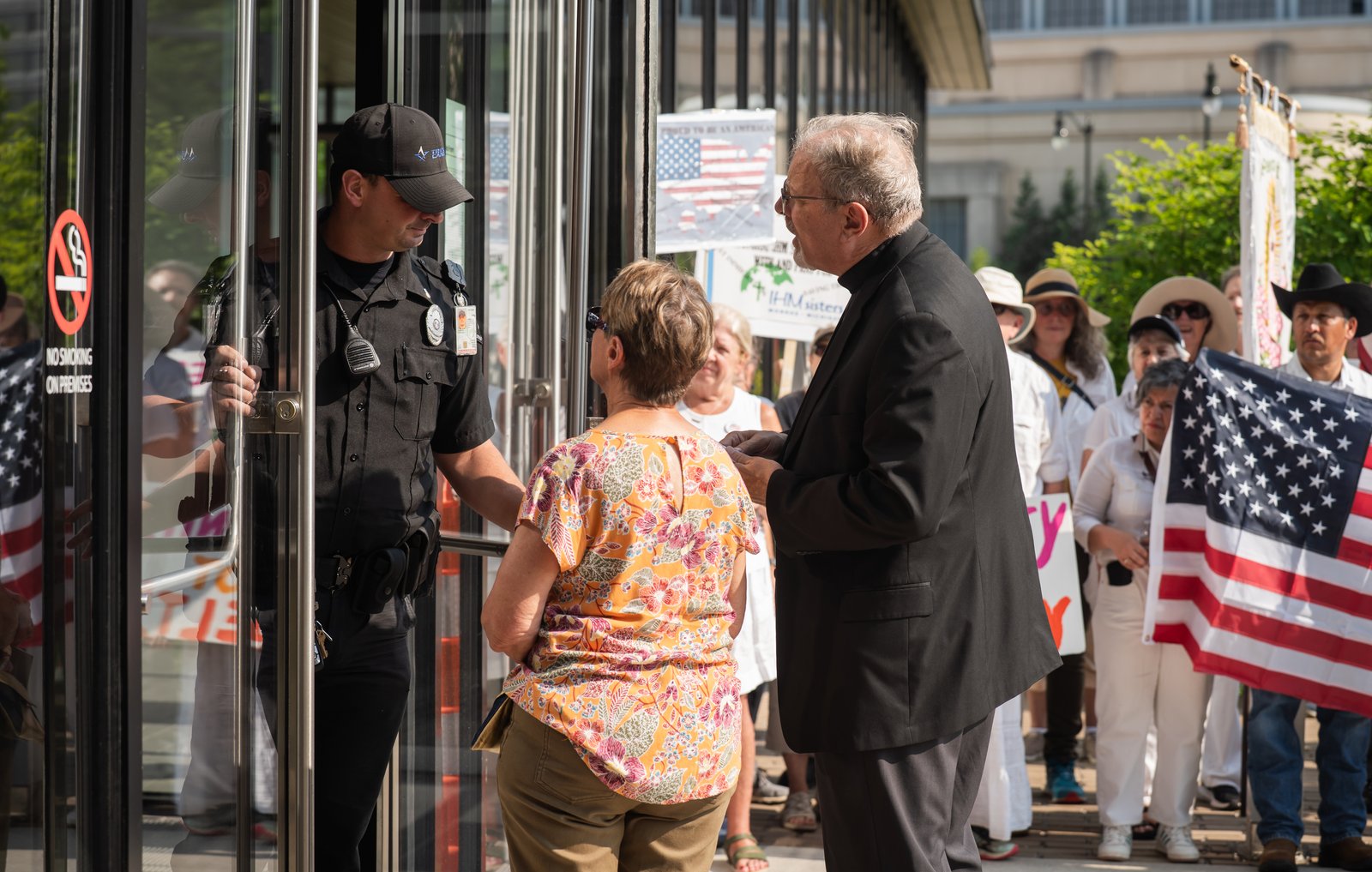
“The basic feeling is disappointed, but not unexpected, I guess,” Fr. Buersmeyer told reporters after the procession. “We are here because we want to create dialogue. We’re not trying to embarrass them. We want to have true dialogue. We’re not against them. This is not an anti-government protest. We want ICE to do their job, but to do it in a way that doesn’t create fear in the community. And some of the things we address in our letter are creating unnecessary chaos and disruption in people’s lives.”
The day began at the plaza in front of Most Holy Trinity Parish, where Strangers No Longer organized clergy to speak before the procession and to remind people of the reason for the day’s procession.
“Everything we do today — everything we do as Strangers No Longer — is rooted in what we call Catholic social teaching,” Fr. Buersmeyer said. “In fact, our pope took the name Leo because Leo XIII in 1891 started what we call Catholic social teaching. It’s a tradition that focuses on key principles, very basic. The two key ones are human dignity and the common good. Every human being has basic human dignity — no matter their ethnicity, their race, their documented status, whatever. Everyone has basic human dignity that’s inviolable and inalienable, and we want to make sure it’s protected.
“The second is what we call the common good,” Fr. Buersmeyer added. “The common good doesn’t look at how the best off are doing. It’s looking at those on the margins; do they have at least basic access to the basic goods that are needed to live a dignified life?”
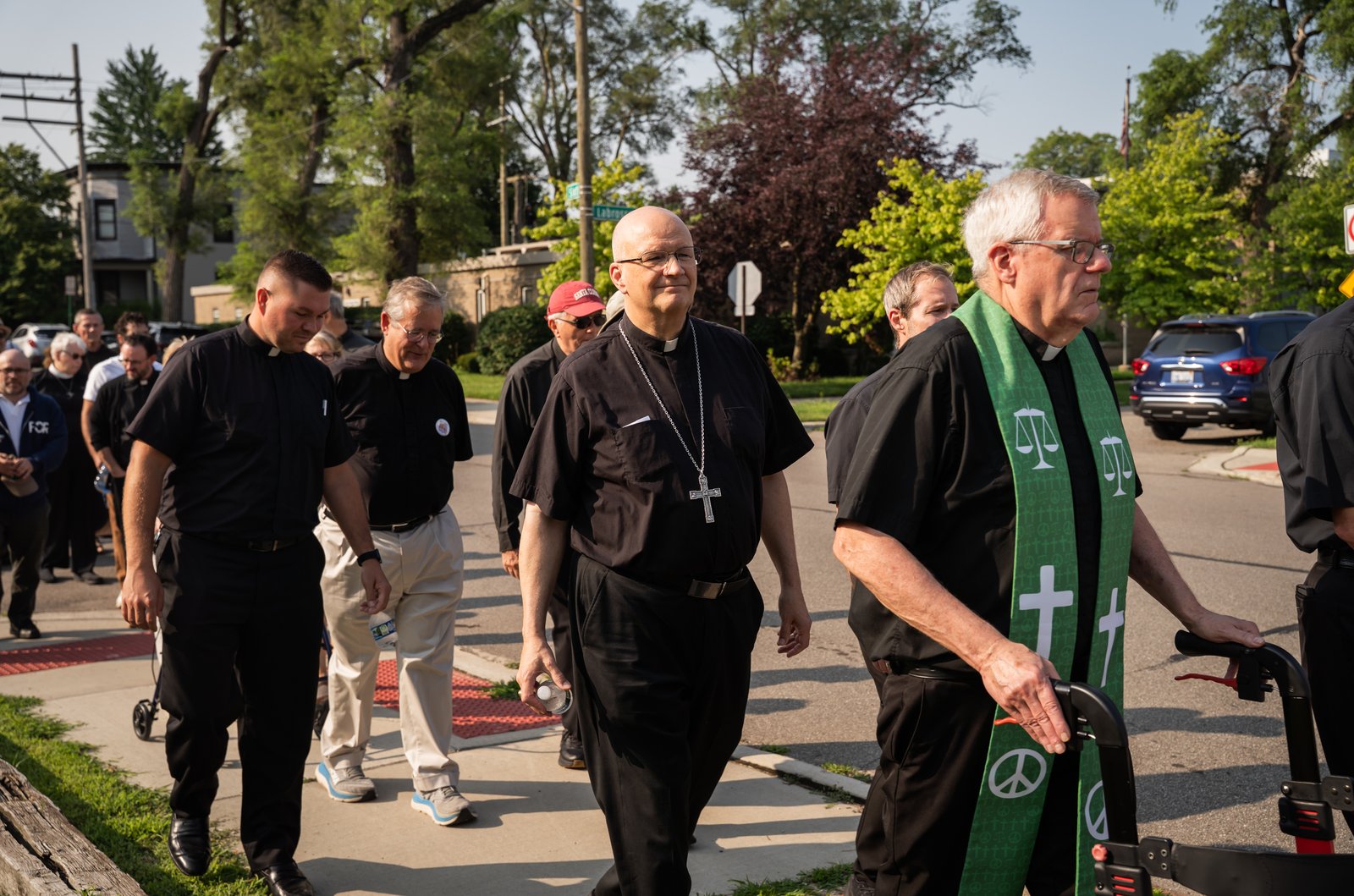
Detroit Archbishop Edward J. Weisenburger, who has recently written about immigration issues, addressed the assembly, offering a prayer before the procession.
“Heavenly Father, You are the source of all life and light,” Archbishop Weisenburger prayed. “You call us to reverence your presence in all those we meet, but most especially the poor, the needy, the troubled, and the immigrant. Be with us today as we spiritually accompany those who are suffering and frightened. Make firm our resolve to reveal and uphold their dignity as your beloved sons and daughters.
“And lastly, Heavenly Father, we ask that you move the hearts of all the members of our great nation to return to our roots of genuine respect for the human rights of all, and the inherent dignity of all persons. May we once again lead the world through our example of compassion and welcome. We ask this through Christ our Lord,” the archbishop concluded.
Before the procession, Archbishop Weisenburger spoke to local media on why the Church takes a stance on immigration.
“We are motived today by our beliefs that flow from the Gospel of Jesus Christ, our Judeo-Christian tradition, which is that every human being has dignity and every human life has worth. And so our God doesn’t ask us to make distinctions among who is worthy and who is not, but rather every human being has dignity, every human being has worth, and we’re here especially to make a prophetic witness to how our nation needs to go back to our roots of charity, accompaniment and welcome,” Archbishop Weisenburger said.
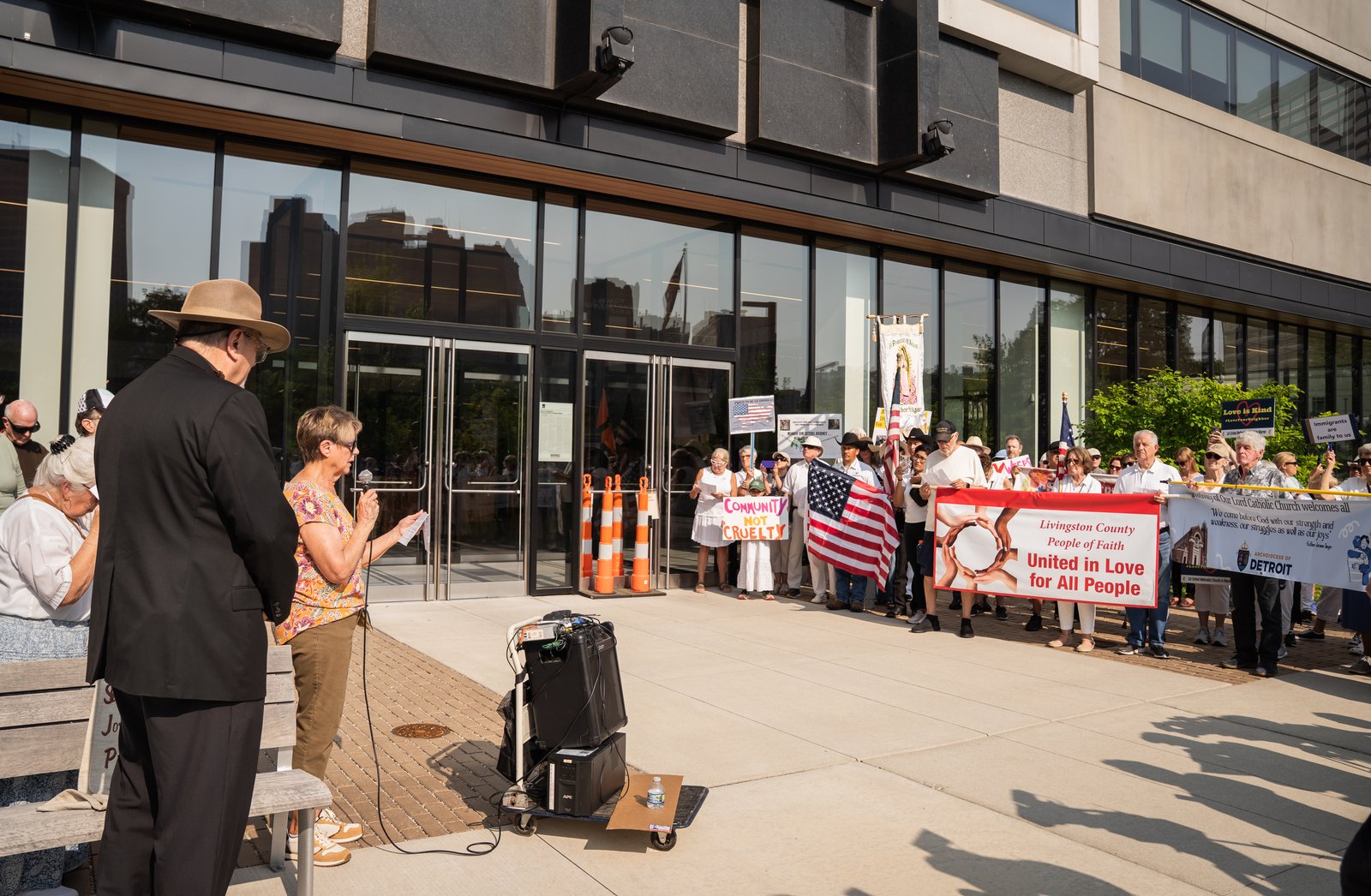
During the procession, parishioners carried banners representing their parish’s Strangers No Longer "Circle of Support," which exist to educate the community about the lives and experiences of immigrants, accompany migrants to medical appointments and legal proceedings, and advocate for a just immigration system.
“We gather today as Michigan residents from different faith traditions and cultures to advocate for a more compassionate and just treatment of all our brothers and sisters,” Sr. Rebecca Vonderhaar, IHM, said. “We thank you Lord, for all who have opened their hearts to many who are fleeing for their lives. We ask you for help now to open our arms and welcome and reach out our hands in support that the desperate may find new hope and lives be restored.”
As the procession made its way to the ICE field office, the names of locals who had been deported were read aloud.
“We are here today to ask that our nation and its leaders know that many of our brothers and sisters and their families have proved their innate goodness, yet have been so unjustly treated by raids and mass deportations,” Sr. Vonderhaar said. “Let us know that apathy is never an option, but trust with faith and goodwill, and our advocacy will bear fruit. Trusting in your goodness, oh God, we move on.”
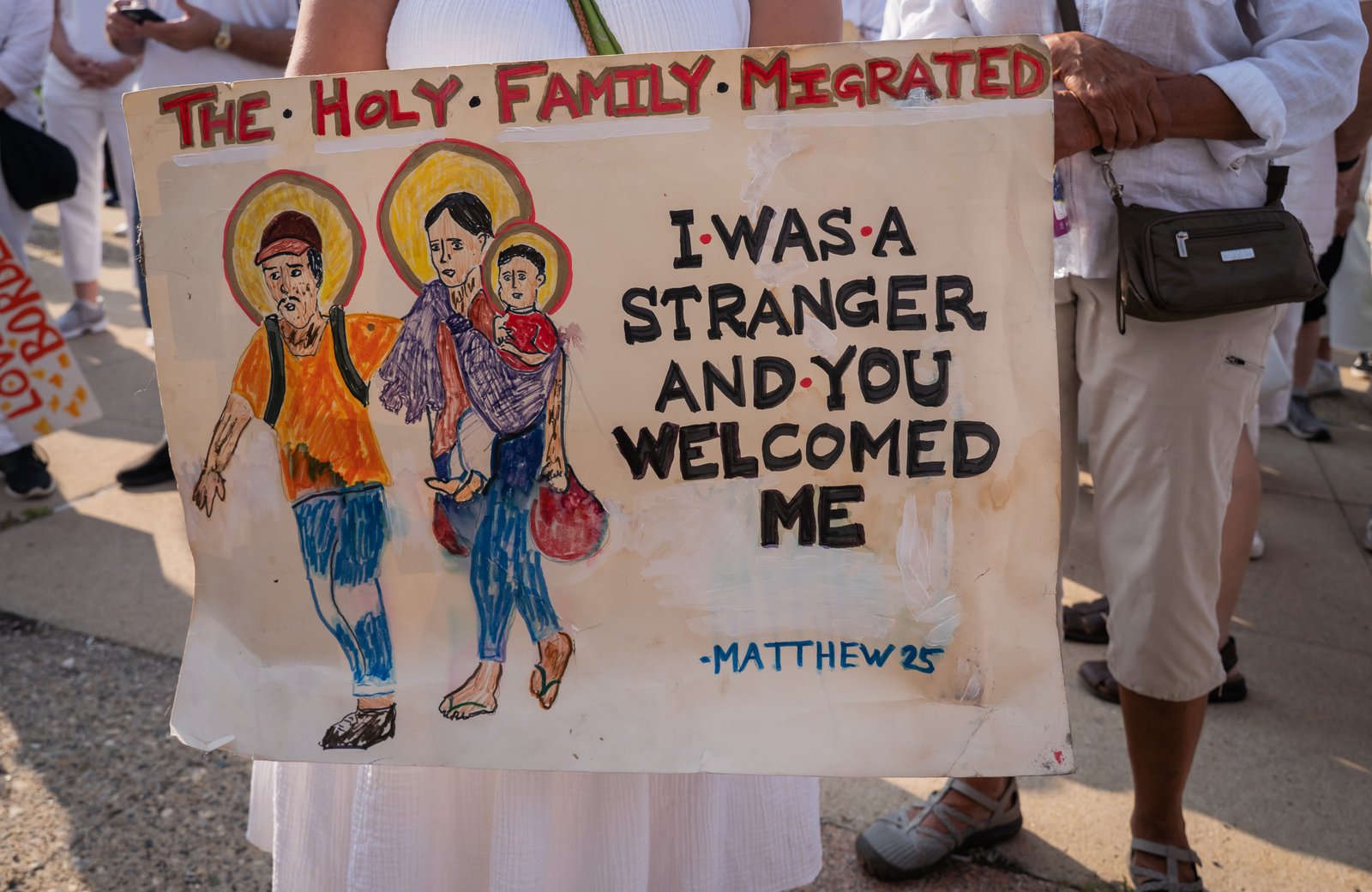
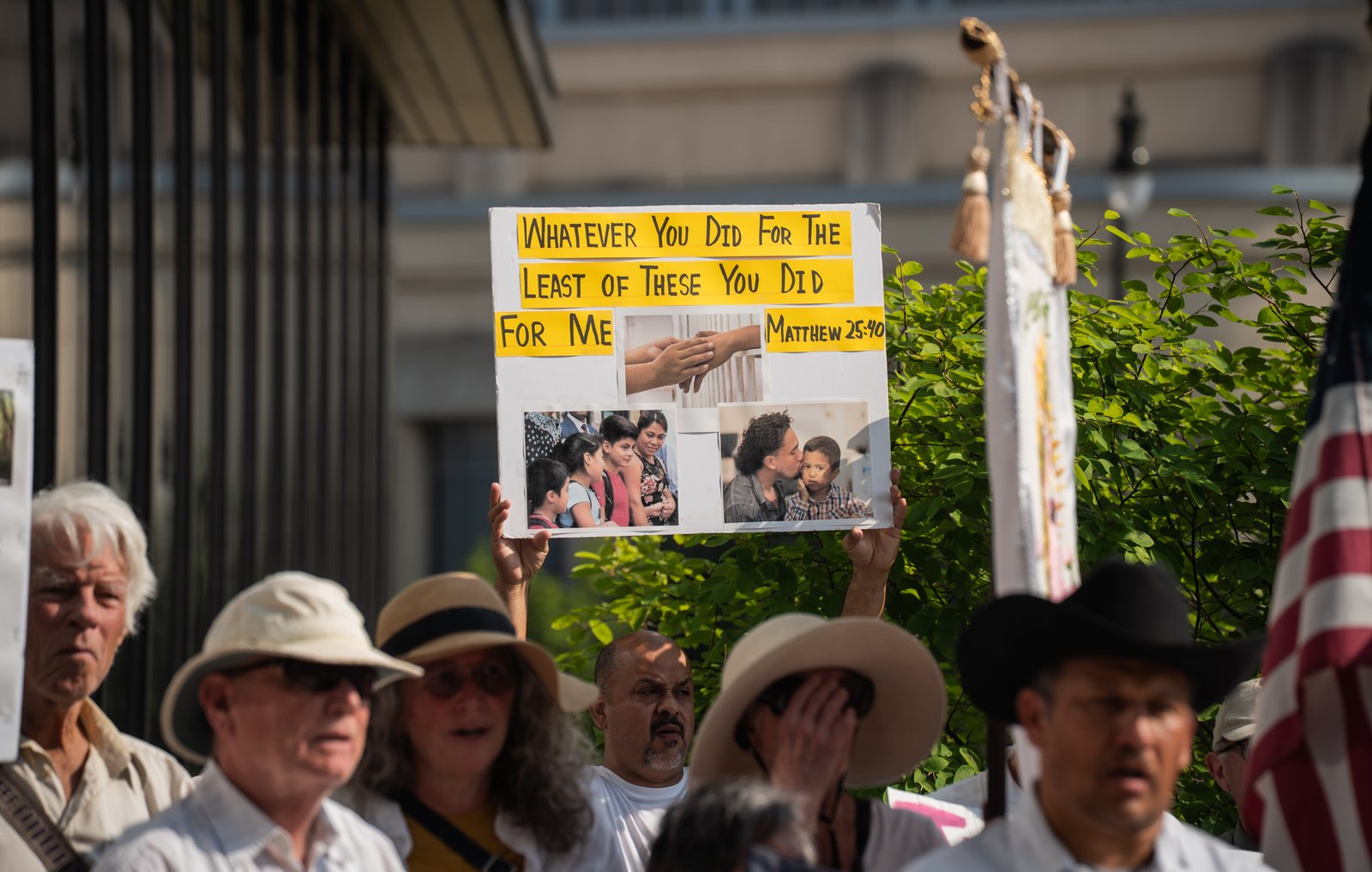
As the procession reached the field office, the assembly began to pray for those affected by recent immigration raids in Detroit and across the nation, and sang a hymn of solidarity with all immigrants and migrants.
“Today’s actions are based on basic moral principles that come from Catholic social teaching,” Fr. Buersmeyer said. “It’s not a political, partisan action; it’s living the Gospel. I know people can get antsy if you start talking about immigration, but the Gospel of Jesus Christ isn’t something that is disembodied; it’s not in spirit alone. Jesus is the Word of God incarnate. He came to save the world. So, it’s important we embody the Gospel, and one of the ways we embody the Gospel is in our social and legal principles, in way we carry out our law, in the way we set up access to basic goods and human services. All of that is part of the Gospel, and that is what we did today.”
Copy Permalink
Immigration and refugees Social justice












